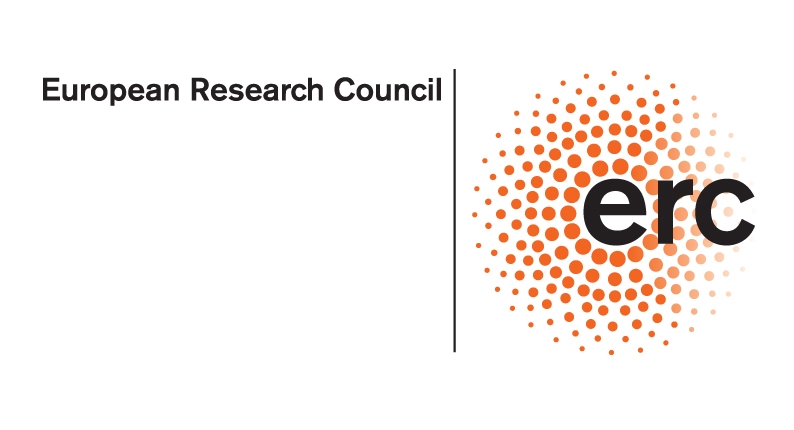
|
Distributed Systems Research
Department of Informatics and Telecommunications
University of Athens
|

|
The Distributed Systems Research Group at UoA investigates topics in the areas of
distributed systems, networking, mobile
computing, and digital preservation.
We are particularly interested in building large reliable systems using
inexpensive, unreliable, and mutually suspicious nodes. Such systems are essential
for problems where participants cannot individually afford a solution and do not
trust third parties to provide the solution.
Research Projects |
People |
Publications |
Undergraduate and Master's thesis topics |
Funding Sources |
Research Projects
Some of our projects include:
NEANIAS
(Novel EOSC Services for Emerging Atmosphere, Underwater & Space Challenges):
NEANIAS promotes Open Science practices and plays an active role in the materialization of the EOSC
ecosystem by efficiently engaging large scientific and professional communities and
actively contributing to the technological, procedural, strategic and business development of the EOSC.
Specifically, NEANIAS will drive the co-design and delivery of innovative thematic services, derived from
state-of-the-art research assets and practices in three major sectors: Underwater research,
Atmospheric research and Space research, each engaging a wide range of academic and business groups,
researchers, professionals, and governmental entities.
This project is funded by the
European Union's Horizon 2020 research and innovation programme.
PPP (Protecting and Preserving Human Knowledge for Posterity):
Several tens of exabytes of human knowledge are generated in digital form every year.
This project aims to investigate, understand, design, and build preservation systems
for digital human knowledge that are both secure and reliable. A key challenge is
to understand the salient characteristics of important human knowledge, i.e., data whose
preservation is deemed valuable. Some data (academic journals) is static. Some data
(online news sites) undergoes frequent changes. Some data (large scientific data
collections) is so large in volume, one cannot make many "backup" copies easily
to preserve it. Still other data (medical data) is sensitive and needs to be
preserved in a manner that respects individual privacy. This project investigates
this large spectrum of data and the challenges in building preservation systems
for this data.
BFT in the Wild: Byzantine Fault Tolerant Systems (BFT) are considered state of the art
technology for building reliable distributed systems capable of withstanding
arbitrary, albeit limited in number, malicious and faulty behaviors of participating nodes, but
have yet to see wide deployment in real-world systems. This project aims to
understand the feasibility of applying BFT technqiues to real-world systems. One main
thrust of this work is to take a real application and try to "BFT-ize" it. That is, design,
implement, and test real-world applications using BFT technologies.
Our application muses include digital preservation
and distributed electronic voting.
Nefeli: This project investigates
algorithms and mechanisms for efficient allocation, deployment, and
management of computing resources in clouds.
A main thrust of the project has been the construction of Nefeli, virtual infrastructure gateway
capable of handling diverse workloads of jobs in cloud environments.
Users provide hints to Nefeli for the handling of their workload jobs while
remaining agnostic to and being relieved of dealing with low-level details of
cloud internals. At the same time, Nefeli is able to adapt cloud resource
assignment as users' workloads change in nature, while achieving significant improvement
in response time and energy consumption.
FINER: This project investigates the development and evaluation via real pilot
studies of an Internet-voting system that is distributed at multiple levels of
operation including the cryptographic, network, storage, and human (administrative) levels.
The project has built the world's first suite of state-of-the-art end-to-end verifiable, distributed
internet voting systems with no single point of failure (besides setup). The systems allow voters to
verify their vote was tallied-as-intended without the assistance of special software or trusted
devices, and external auditors to verify the correction of the election process. Additionally,
the systems allow voters to delegate auditing to a third party auditor, without sacrificing their
privacy. An earlier version of the systems has been used to conduct exit polls at three large
voting sites for two national-level elections and is being adopted for use by the largest civil
union of workers in Greece, consisting of over a half million members.
|
Current and Affiliated Lab Members:
- Prof. Mema Roussopoulos
- Nikos Chondros, PhD student.
- Panagiotis Diamantopoulous, Master's student.
- Michalis Konstantopoulos.
- Stathis (Sotirios-Efstathios) Maneas, Master's student.
- Evaggelos Papastavros, Master's student.
- Christos Patsonakis, PhD student.
- Vassilis Poulimenos.
Alumni:
- Konstantinos Kokordelis.
- Stelios Stylianou.
- Konstantinos Tsakalozos.
Funding
| We gratefully acknowledge the support of the European Research Council, which is funding activities of our
group via a European Starting Grant (no 279237) from the European Community's Seventh Framework Programme.
We also gratefully acknowledge funding via a
Greek Research and Technology "Aristeia" (Excellence).
|

|

|
|



